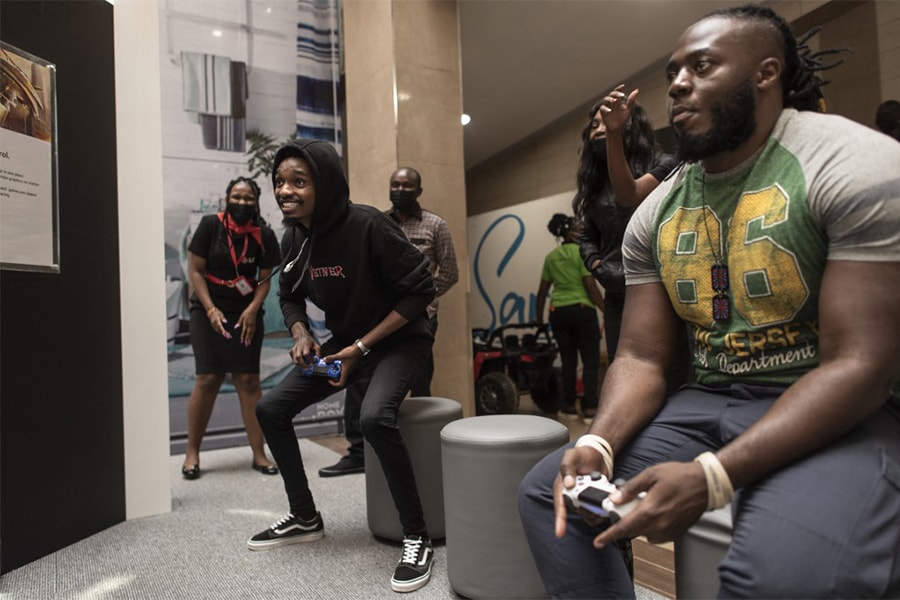
Kenya video gamers face an uphill battle to make their mark
Several Kenyan gamers are trying to find their feet in a multi-billion dollar industry that is slowly making its way onto international platforms such as the inaugural Commonwealth esports championships
 A contestant (L) reacts during a gaming session against Brian Diang'a (R), 28, a gamer popularly known by his online avatar, Beast, at a demo during an exhibition of gaming electronics in Nairobi on October 22, 2021; Image: Tony KARUMBA / AFP
A contestant (L) reacts during a gaming session against Brian Diang'a (R), 28, a gamer popularly known by his online avatar, Beast, at a demo during an exhibition of gaming electronics in Nairobi on October 22, 2021; Image: Tony KARUMBA / AFP
For years, the virtual world of video games was the only place where Kenyan gamer Brian Diang'a felt safe from his abusive, alcoholic father and their unhappy home in Kibera, Africa's largest slum.
"Gaming was my only escape," Diang'a told AFP, describing a childhood mired in poverty and violence.
Popularly known by his online avatar Beast, the 28-year-old discovered video games when he was nine.
"My dad had become an alcoholic and he would come back home in a drunken stupor and beat up my mom. Home became somewhere I did not want to be."
His daily visits to gaming dens worried his mother, who believed they were a bad influence on her son and a distraction from his schoolwork.







